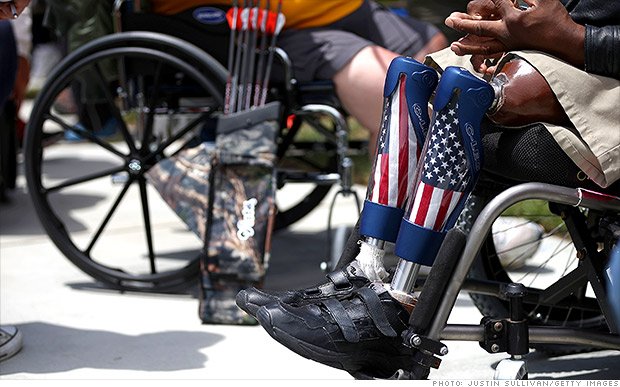
Disabled veterans may have a difficult time returning home and transitioning back to civilian life. There are several programs available that can provide assistance, equipment and resources to disabled veterans.
The Department of Veterans Affairs (VA) can help veterans who have become disabled because of their military service find the right program for their needs. The VA can also provide information on eligibility and contact the organizations that offer these services.
Here are five resources for disabled veterans:
1. Housing Assistance
There are several programs and organizations that help disabled veterans achieve homeownership or provide assistance with monthly rental payments.
The VA works with the Department of Housing and Urban Development as part of the HUD-VASH program, which provides rental assistance to veterans who are eligible for VA healthcare services.
Other resources include:
- Building Homes for Heroes: Builds or modifies homes, and gifts them (mortgage-free) to veterans.
- Homes for the Brave: Helps homeless veterans attain safe and affordable housing.
- Purple Heart Homes: Assists service-connected disabled veterans in attaining homeownership or modifying homes to accommodate disabilities.
- The Veterans’ Place, Inc.: Offers transitional housing and programs for homeless veterans.
2. Transportation
Some disabled veterans have difficulty getting to their appointments at VA facilities. The Disabled American Veterans programs will transport injured and ill veterans to VA care facilities for free.
The program is available across the country.
3. Medical Equipment
Disabled veterans can obtain the medical supplies and equipment they need through the VA. The VA will supply a wide range of medical equipment, including:
- Beds, including hospital beds
- Stair glides
- Invalid lifts
- Ramps
- Porch lifts
- Mobility/walking aids
- Supplies, such as incontinence supplies, catheters, urinals, etc.
The cost to install durable medical equipment will also be covered by the VA.
The Wings for Warriors organization also provides veterans with the tools and resources they need to get through the recovery process.
4. Service Dogs
Service dogs can assist disabled veterans and those with post-traumatic stress disorder (PTSD). There are several organizations that provide service dogs to veterans in need, including:
- K9’s for Warriors: Provides service dogs, training, equipment, certification, seminars, vet care, legal instruction, home cooked meals and housing to disabled veterans.
- PTSD Service Dogs: Provides service dogs to veterans specifically suffering from PTSD as well as those with mobility issues.
- Patriot Paws: Provides service dogs at no cost to veterans.
- Service Dog Project: Provides Great Dane service dogs to people who require mobility assistance.
- Next Step Service Dogs: Provides trained service dogs to veterans with invisible disabilities.
5. Mental Health
In addition to physical health care, the VA also helps veterans obtain the mental health care they need.
The Veterans Crisis Line is free and confidential. Responders are qualified and specially trained in helping veterans of all ages and circumstances. The hotline provides immediate support to veterans who are struggling emotionally.
The VA can connect veterans with care facilities that can provide assistance with mental health issues, including PTSD.
In addition to these five resources, the VA may also be able to provide disabled veterans access to other programs that can provide financial assistance.
ATTENTION READERS
We See The World From All Sides and Want YOU To Be Fully InformedIn fact, intentional disinformation is a disgraceful scourge in media today. So to assuage any possible errant incorrect information posted herein, we strongly encourage you to seek corroboration from other non-VT sources before forming an educated opinion.
About VT - Policies & Disclosures - Comment Policy



